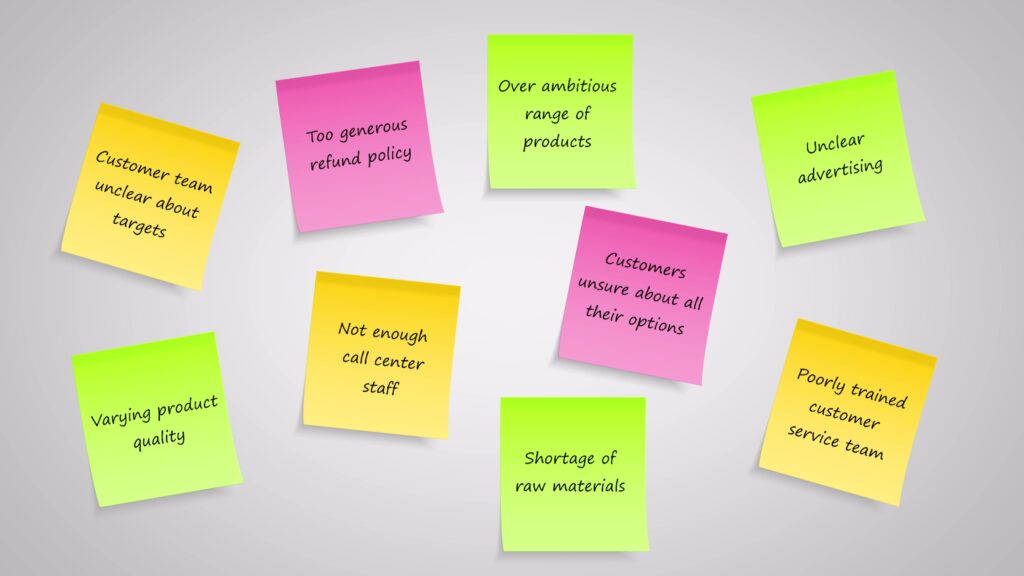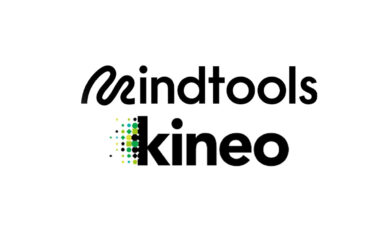Is it just me, or does life seem way more hectic than it used to be?! I feel like I’ve got notifications coming at me from all angles, telling me about upcoming deadlines, relentless breaking news stories, and reminders to pay the bills and wish my friends a happy birthday. There are 43 different tabs open in my brain all at once and I just can’t keep up!
In today’s VUCA world, getting all those mental tabs under control is more important than ever. And there are things we can all do to boost our organizational skills. That’s why our latest video series focuses on Being Organized. So check out the videos below to discover how to avoid common time-management pitfalls, bring harmony to your team, and organize your ideas.
Are You Making These Common Time-Management Mistakes?
One effective way to get more organized is to improve your time management. It’s all too easy to fall into common time-management traps, like multitasking – a habit I’m often guilty of! – and failing to set goals. Discover other ways to improve with our new Time-Management Mistakes Video. And to get a more general idea of how well you manage your time, take our time management quiz.
Why Is Multitasking Bad?
You’d be forgiven for thinking that multitasking is a good way of getting two or more jobs done at the same time. But how effective are you really when you’re juggling multiple tasks at once? Tackling two jobs in one go can lead to subpar results and a longer completion time because neither is getting your full focus. So instead, give your full attention to one job at a time, and close those other mental tabs!

How Does Goal Setting Help You to Be More Organized?
Goal setting might not seem like a time-management tool, but having specific goals to work toward helps you to know where to focus your time and energy. Once you set clear goals, you can start to prioritize your tasks. And, in today’s VUCA world, having clear direction will help you and your team stay on track in the face of adversity and change.
To find out what the other common time management mistakes are, and how you can avoid them, watch our 10 Common Time-Management Mistakes Video.
The Dangers of Overpromising
Another mistake many of us make is overpromising. Taking on more than you have reasonable capacity for can throw you off balance, hinder your other projects, and lead to broken promises. It doesn’t feel nice to say “no” when someone asks for help, even when you have good reason to, but failing to keep your word at work can damage your team relationships and your reputation. In fact, it can do way more damage than admitting that you have too much on.
So, consider what you’ve already got on your plate, and any upcoming holiday, before you commit to another task! Try saying “Yes” to the person, but “no” to the task to keep everyone happy. By protecting your time and energy in this way, you’ll not only be able to focus on the right tasks, but you’ll also earn respect from your peers by establishing boundaries.
Our video on Keeping Your Word at Work has more tips on how to avoid broken promises.
How to Manage Your Deadlines
However, sometimes things just don’t go to plan and you may have to break a promise or miss a deadline through no real fault of your own. When this happens, try to limit the damage, and take any steps you can to prevent it from happening again.
One key way to set yourself up for success is to ensure you have the right support and resources before you get started. Do you have access to all the files you need? Who can help you if you get stuck? You can also mitigate any harm done by unexpected change by putting a contingency plan in place.
One missed deadline might not seem like a big deal, but it can trip you and your team up further down the road. Explore more tips on how to organize your time and commitments to manage your deadlines in our video, How to Meet a Deadline.
How to Organize Your Ideas
If you’re a manager, you probably deal with large volumes of information, feedback and ideas on a regular basis. Especially when you’re working on improving a service or fixing a problem. And while it’s no bad thing to have a wealth of ideas from your team, too many options can become overwhelming. So, if you ever feel like you’ve got too many options and don’t know which ones to prioritize, try using affinity diagrams!

Affinity diagrams help you to organize multiple ideas into common themes. This provides a bird’s-eye view, making it easier to understand complex relationships, identify subtasks, and evaluate potential solutions. Learn more about how they can help you and your team organize its ideas with our Affinity Diagrams Video.
More Resources on Being Organized
If you want even more resources on how to be more organized and manage your time better, check out these related resources:
How to Take Care of Your “Social Battery”
Hurry Sickness
How to Be More Organized
Prioritization
Wheel of Life




